Baycrest offers four train-the-trainer workshops that provide clinicians with the background information and skills to effectively deliver evidence-based group interventions focused on cognitive rehabilitation. Full-day workshops combine interactive lectures and hands-on practice related to the content and delivery of the program of interest. Workshops are aimed at licenced health care professionals and students including occupational therapists, social workers, speech-language pathologists, psychologists, nurses, physicians, etc. Continuing Education credits will be available for attendees.
Interventions for Memory and Aging: A Train-the-Trainer Workshop
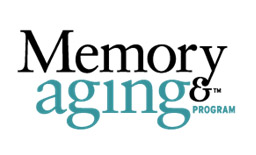
This workshop is designed for clinicians and students who work with older adults. Participants will learn about age-related memory changes, health and lifestyle factors that affect memory, and strategies that can be used to optimize memory function. Drawing on content from Baycrest’s Memory and Aging Program® for older adults with normal age-related memory changes, workshop participants will learn how to deliver evidence-based memory interventions.
-
Bio
 Dr. Angela Troyer is the Professional Practice Chief of Psychology and Program Director of Neuropsychology and Cognitive Health at Baycrest. She is cross-appointed as an Assistant Professor in the Department of Psychology at the University of Toronto. She received her Ph.D. in neuropsychology from the University of Victoria, and completed a postdoctoral research fellowship at the Rotman Research Institute of Baycrest. She has worked as a psychologist at Baycrest since 1997, where she developed and implemented the Memory and Aging Program and provided clinical neuropsychological assessment services. She has an active research program in the area of assessment and intervention of memory changes associated with normal aging and early cognitive disorders.
Dr. Angela Troyer is the Professional Practice Chief of Psychology and Program Director of Neuropsychology and Cognitive Health at Baycrest. She is cross-appointed as an Assistant Professor in the Department of Psychology at the University of Toronto. She received her Ph.D. in neuropsychology from the University of Victoria, and completed a postdoctoral research fellowship at the Rotman Research Institute of Baycrest. She has worked as a psychologist at Baycrest since 1997, where she developed and implemented the Memory and Aging Program and provided clinical neuropsychological assessment services. She has an active research program in the area of assessment and intervention of memory changes associated with normal aging and early cognitive disorders.
 Dr. Susan Vandermorris is a psychologist in the Neuropsychology and Cognitive Health Program. She received her Ph.D. in clinical neuropsychology from the University of Victoria, and completed a postdoctoral fellowship in cognitive neuroscience at the Rotman Research Institute. She presently runs the Memory and Aging Program™ and provides clinical neuropsychological assessment services to older adults. Her research involves applications of neuropsychological assessment and intervention to improve diagnostic accuracy and enhance daily functioning.
Dr. Susan Vandermorris is a psychologist in the Neuropsychology and Cognitive Health Program. She received her Ph.D. in clinical neuropsychology from the University of Victoria, and completed a postdoctoral fellowship in cognitive neuroscience at the Rotman Research Institute. She presently runs the Memory and Aging Program™ and provides clinical neuropsychological assessment services to older adults. Her research involves applications of neuropsychological assessment and intervention to improve diagnostic accuracy and enhance daily functioning.
-
Objectives
During this workshop, participants will:
- Review memory changes associated with normal aging and how different health and lifestyle factors can impact memory function
- Learn evidence-based protocols for memory strategy training and brain health promotion
- Gain hands-on practice with training others in the use of memory strategies
- Understand evidence for the benefits of memory interventions for older adults
- Appreciate common challenges to delivering group memory interventions
Learning the Ropes for Living with MCI®
www.learningtheropesformci.com
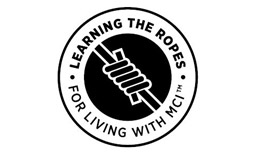 Learning the Ropes for Living with MCI® is aimed at community dwelling older adults experiencing Mild Cognitive Impairment (MCI) and their close relative. The focus is on optimizing cognitive health through lifestyle choices, memory training, and psychosocial support. The immediate goals of the program are to improve healthy lifestyle behaviours in all participants, memory strategy knowledge and use in participants with MCI, and adaptive coping skills in close relatives (family/friend). The overarching long term goals are to prevent or delay the onset of clinical dementia in persons with MCI and to prevent or minimize physical and mental health declines in their close relative. The content of this evidence-based program is crafted to meet the specific needs of people living with MCI based on the most current research. This workshop provides healthcare professionals with an in-depth understanding of MCI and the necessary background and training to deliver an effective group intervention targeted to the specialized needs of those affected by MCI.
Learning the Ropes for Living with MCI® is aimed at community dwelling older adults experiencing Mild Cognitive Impairment (MCI) and their close relative. The focus is on optimizing cognitive health through lifestyle choices, memory training, and psychosocial support. The immediate goals of the program are to improve healthy lifestyle behaviours in all participants, memory strategy knowledge and use in participants with MCI, and adaptive coping skills in close relatives (family/friend). The overarching long term goals are to prevent or delay the onset of clinical dementia in persons with MCI and to prevent or minimize physical and mental health declines in their close relative. The content of this evidence-based program is crafted to meet the specific needs of people living with MCI based on the most current research. This workshop provides healthcare professionals with an in-depth understanding of MCI and the necessary background and training to deliver an effective group intervention targeted to the specialized needs of those affected by MCI.
-
Agenda
AGENDA:
8:45 am
9:00 – 10:15 am
- Opening remarks
- Current Understanding of MCI, Dr. Keera Fishman, Ph.D., C. Psych.
- Learning the Ropes Program Overview and Evidence, Dr. Keera Fishman, Ph.D., C. Psych.
10:15 - 10:30 am
Break
10:30 am – 12:30 pm
- Program Protocol Overview and Process Considerations: In-person and virtual delivery models, Dr. Matthew McPhee, Ph.D., C. Psych.
- Session-by-Session Program Protocol: Sessions 1 – 4, Dr. Matthew McPhee, Ph.D., C. Psych.
12:30 – 1:15 pm
Lunch Break
1:15 – 3:15 pm
- Session-by-Session Program Protocol: Sessions 5 – 7, Dr. Keera Fishman, Ph.D., C. Psych.
- Psychosocial intervention for family living with a relative with MCI, Jessie Lin, MSW, RSW
- Fostering adaptive coping skills, Jessie Lin, MSW, RSW
3:15 – 3:30 pm
Break
3:30 – 4:00 pm
- Fostering adaptive coping skills (continued), Jessie Lin, MSW, RSW
- Delivering Learning the Ropes in Your Practice / Health Centre, Dr. Keera Fishman, Ph.D., C. Psych
4:00 – 4:30 pm
Closing Remarks and Discussion
-
Bio
 Dr. Keera Fishman is a Clinical Neuropsychologist in the Neuropsychology and Cognitive Health Department at Baycrest. She is also an internship supervisor, practicum supervisor, and the psychology practicum coordinator. She obtained her Ph.D. in Clinical Psychology from the University of Ottawa in 2021, and completed her postdoctoral fellowship as the Neuropsychology Lead of the Ontario Neurodegenerative Disease Research Initiative (ONDRI). She facilitates the Learning the Ropes for Living with MCI® program. Along with the Learning the Ropes and KL-CARE teams and the support of a CABHI Spark Grant, Dr. Fishman has launched a free, interactive webinar called Learning the Ropes Foundations, which communicates three key teachings from the Learning the Ropes for Living with MCI® Program (www.baycrest.org/ltrfoundations). Dr. Fishman also provides neuropsychology consultation services to the geriatrics units at Ontario Shores Center for Mental Health Sciences. Her research interests include the impact of neuropsychiatric symptoms on memory and executive function, and understanding how neurodegenerative diseases evolve over time.
Dr. Keera Fishman is a Clinical Neuropsychologist in the Neuropsychology and Cognitive Health Department at Baycrest. She is also an internship supervisor, practicum supervisor, and the psychology practicum coordinator. She obtained her Ph.D. in Clinical Psychology from the University of Ottawa in 2021, and completed her postdoctoral fellowship as the Neuropsychology Lead of the Ontario Neurodegenerative Disease Research Initiative (ONDRI). She facilitates the Learning the Ropes for Living with MCI® program. Along with the Learning the Ropes and KL-CARE teams and the support of a CABHI Spark Grant, Dr. Fishman has launched a free, interactive webinar called Learning the Ropes Foundations, which communicates three key teachings from the Learning the Ropes for Living with MCI® Program (www.baycrest.org/ltrfoundations). Dr. Fishman also provides neuropsychology consultation services to the geriatrics units at Ontario Shores Center for Mental Health Sciences. Her research interests include the impact of neuropsychiatric symptoms on memory and executive function, and understanding how neurodegenerative diseases evolve over time.
 Dr. Matt McPhee, Ph.D., C.Psych. is a neuropsychologist in the Learning the Ropes for Living with MCI® program, an internship supervisor, and a practicum supervisor. He obtained his Ph.D. in Clinical Psychology from the University of Toronto in 2022. Dr. McPhee completed a post-doctoral fellowship in cognitive intervention at the Rotman Research Institute, where he now holds an Adjunct Scientist status. His clinical interests include neuropsychological assessment and intervention with adults and older adults. His current research program maintains an emphasis on the study of real-world effectiveness of cognitive interventions.
Dr. Matt McPhee, Ph.D., C.Psych. is a neuropsychologist in the Learning the Ropes for Living with MCI® program, an internship supervisor, and a practicum supervisor. He obtained his Ph.D. in Clinical Psychology from the University of Toronto in 2022. Dr. McPhee completed a post-doctoral fellowship in cognitive intervention at the Rotman Research Institute, where he now holds an Adjunct Scientist status. His clinical interests include neuropsychological assessment and intervention with adults and older adults. His current research program maintains an emphasis on the study of real-world effectiveness of cognitive interventions.
Ms. Jessie Lin is a social worker with the Learning the Ropes for Living with MCI® program. She received her Master of Social Work (MSW) from the University of Toronto in 2022 with a specialization in Mental Health and Health. She provides psychosocial support to clients and family members. This includes individual counselling, family and couples counselling, facilitation of psychoeducational support groups and assistance for clients in accessing a variety of resources in their communities.
-
Objectives
During this workshop, participants will:
- Review how MCI differs from normal aging and dementia, and gain an appreciation of how cognitive processes are typically affected in these groups
- Acquire first-hand experience with utilizing practical strategies for improving everyday remembering and learn how to effectively communicate this knowledge to others
- Learn how to engage individuals in a group intervention in a manner that facilitates their ability to make behavioural changes targeted to promote positive cognitive health outcomes
- Gain an understanding of how lifestyle factors such as exercise, diet, and social involvement impact brain health
- Develop an appreciation for how MCI impacts the lives of people experiencing the condition AND about the impact of MCI on the lives of close relatives
- Understand how to capitalize on flexibilities built into the program protocol to facilitate skill in best meeting the needs of those served
Goal Management Training®
www.goalmanagementtraining.com
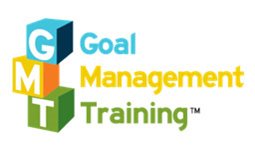 Goal Management Training® (GMT) is a leading evidence-based intervention for treatment of patients with impairments in concentration, planning, and effective task completion, known as executive functions. It is an interactive program designed to improve the organization of goals and the ability to achieve them for people experiencing executive function impairment, including the long-term effects of COVID-19.
Goal Management Training® (GMT) is a leading evidence-based intervention for treatment of patients with impairments in concentration, planning, and effective task completion, known as executive functions. It is an interactive program designed to improve the organization of goals and the ability to achieve them for people experiencing executive function impairment, including the long-term effects of COVID-19.
This workshop will provide the latest clinical-scientific information concerning the assessment of executive functions and their evidence-based rehabilitation with GMT.The workshop will be led by Dr. Brian Levine, Ph.D., C.Psych., ABPP-cn, primary developer of GMT, clinical neuropsychologist, and senior scientist at the Rotman Research Institute. Dr. Levine will review the neuropsychology and cognitive neuroscience of executive functions, including psychological and neuroanatomical background, neuroimaging findings, diagnostic considerations, and clinical assessment.
Although grounded in neuroscience theory, the emphasis will be applied, with use of clinical cases. Special attention will be devoted to conditions causing diffuse brain impairment, including post-acute effects of COVID-19. This will be followed by an interactive train-the-trainer session with emphasis on remote (electronic) delivery of GMT.
Attendees of this workshop will gain priority access to new electronic resources and protocol adaptations to increase the flexibility of delivery of GMT across clinical contexts.
This workshop through the Rotman Research Institute is approved by the Canadian Psychological Association to offer 6 continuing education credits for psychologists. This workshop is also approved for 6 hours of Medical Psychotherapy Association of Canada (MDPAC) Group Continuing Education Credits and 1 hour of MDPAC CCI credits. The Rotman Research Institute maintains responsibility for the program.
-
Bio

Dr. Brian Levine is a senior scientist at the Rotman Research Institute, Baycrest Health Sciences and a professor of Psychology in the Departments of Psychology and Medicine (Neurology), University of Toronto. He is an expert in the areas of executive and prefrontal function, memory, psychometrics and test development, multimodal brain imaging, the relationship of brain imaging findings to behaviour, real-life outcome following brain injuries and diseases, and cognitive neurorehabilitation. Levine has published over 150 peer-reviewed articles and chapters in high impact peer-reviewed journals and texts, and one book, Mind and the frontal lobes: cognition, behaviour, and brain imaging (2012, Oxford University Press).
His research converges on the goal of improving assessment and treatment of executive functioning, attention, and memory in patients with brain disease, incorporating cutting-edge cognitive neuroscience methodologies. Levine’s research has been cited nearly 20,000 times. He has shared his expertise with the general public (e.g., the New York Times, New York Magazine, the Washington Post, Wired, CBC radio, USA Today, Psychology Today, Scientific American, The Globe and Mail, The Toronto Star, and Discovery Health). Although he is a full-time scientist, Levine is clinically active. As a board-certified neuropsychologist, he is frequently called upon to provide independent expert neuropsychological consultation for evaluation of psychiatric or neurological conditions, including occupational assessments and personal injury cases.
For more information, see
LevineLab.ca.
Intervention for Moderate-to-Severe Memory Impairment: A Train-The-Trainer Workshop
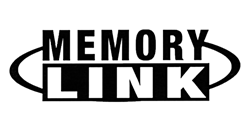 This workshop is designed for clinicians and students working with individuals who are experiencing stable moderate-to-severe memory impairment that is preventing them from learning and utilizing internal memory strategies. The focus of this memory intervention method is to convey step-based skills to individuals with significant learning and memory difficulties, and then apply those skills in strategic ways to compensate for functional memory in daily life. Content and examples will be drawn from the Baycrest Memory Link Program (www.baycrest.org/memorylink), which provides memory rehabilitation services to individuals with acquired brain injury.
This workshop is designed for clinicians and students working with individuals who are experiencing stable moderate-to-severe memory impairment that is preventing them from learning and utilizing internal memory strategies. The focus of this memory intervention method is to convey step-based skills to individuals with significant learning and memory difficulties, and then apply those skills in strategic ways to compensate for functional memory in daily life. Content and examples will be drawn from the Baycrest Memory Link Program (www.baycrest.org/memorylink), which provides memory rehabilitation services to individuals with acquired brain injury.
-
Registration
For more information, contact
bvasquez@baycrest.org
-
Bio

Dr. Brandon Vasquez is a psychologist in the Neuropsychology and Cognitive Health Program at Baycrest and an Assistant Professor at the University of Toronto. He received his Ph.D. from the University of Toronto, and completed a postdoctoral research fellowship in neuropsychology at the Toronto Rehabilitation Institute. His clinical work involves the delivery of a memory intervention program (Memory Link) for individuals with moderate-to-severe memory impairment that focuses on training compensation with commercial technology. His research investigates how individuals with significant explicit memory dysfunction acquire new functional skills applied to memory compensation, and explores how advances in human-computer interaction can be utilized to improve memory intervention methods.
-
Objectives
During this workshop, participants will:
- Review background memory theory: Normal memory, amnesia
- Learn about evidence-based approaches to memory rehab
- Understand evidence for skill learning in memory impaired adults
- Learn how to train new step-based skills in adults with moderate-to-severe memory impairment using the Memory Link Method
- Learn how to determine appropriateness for using the Memory Link method, and adaptations to tailor treatment to specific client types
- Learn how to adapt the Memory Link Method to be applied virtually (information not contained in the manual)
- Appreciate and learn to manage common challenges to delivering individual memory intervention for moderate-to-severe impairments
Cannabis and Older Adults – Accredited eLearning Modules
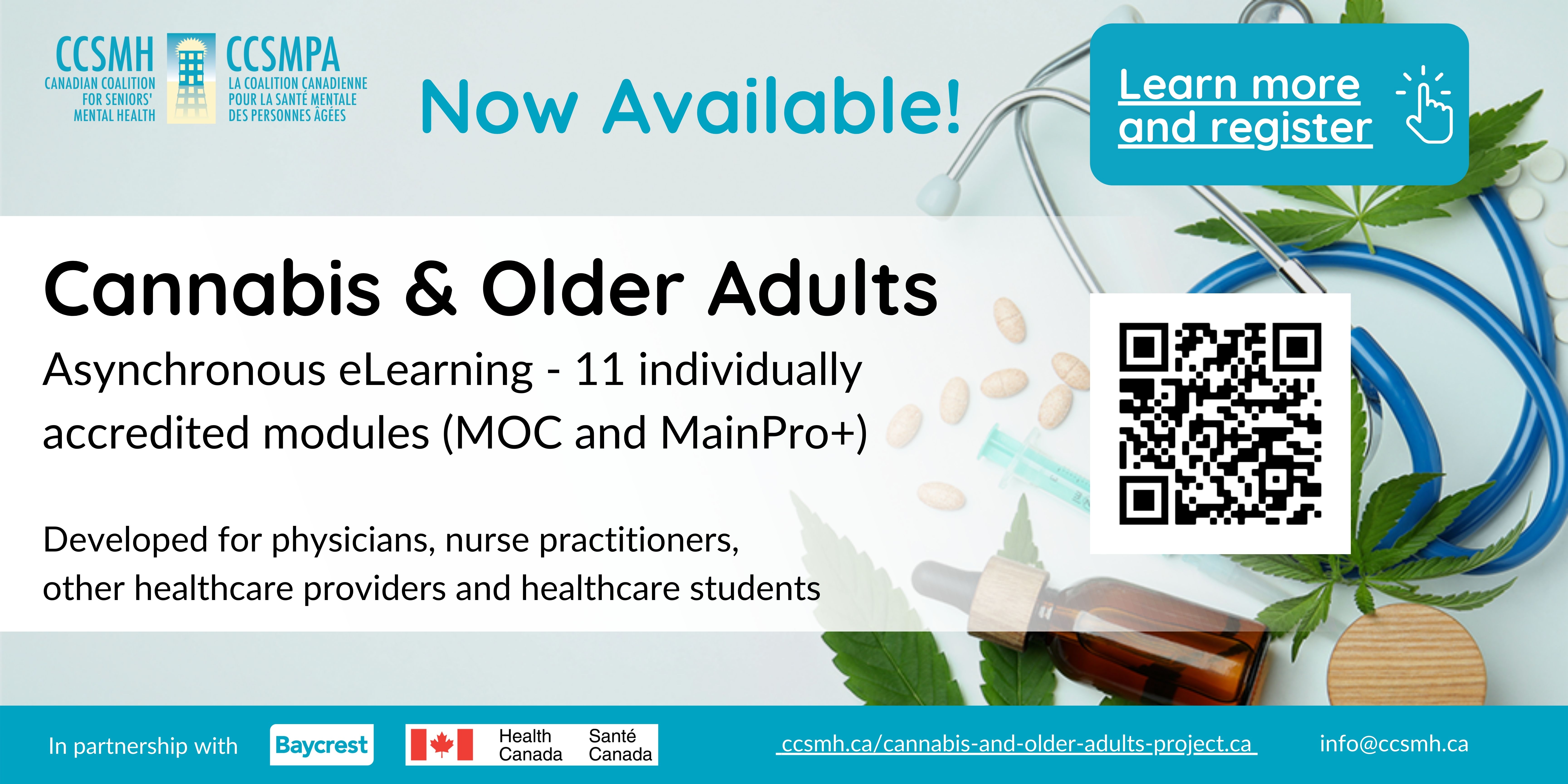 The Canadian Coalition for Seniors’ Mental Health (CCSMH) is pleased to let you know that free, asynchronous, accredited eLearning modules on Cannabis and Older Adults (English version) are now available.
The Canadian Coalition for Seniors’ Mental Health (CCSMH) is pleased to let you know that free, asynchronous, accredited eLearning modules on Cannabis and Older Adults (English version) are now available.
Here's what you need to know:
- The target audiences are physicians, nurse practitioners, other healthcare providers and healthcare students.
- Examples of topics include: evidence for cannabis as treatment; medico-legal considerations; how to talk to older adults about cannabis; drug interactions; adverse events; safer cannabis use, and; developing a treatment plan.
- Each eLearning module is individually accredited (MOC, MainPro+) so you can do one, a few or all of them for up to a total of 6.75 hours/credits.
- Asynchronous learning allows you to pick the best times for you to complete the modules.
For more information and to register, visit:
https://ccsmh.ca/areas-of-focus/cannabis-use-2/professional-development/